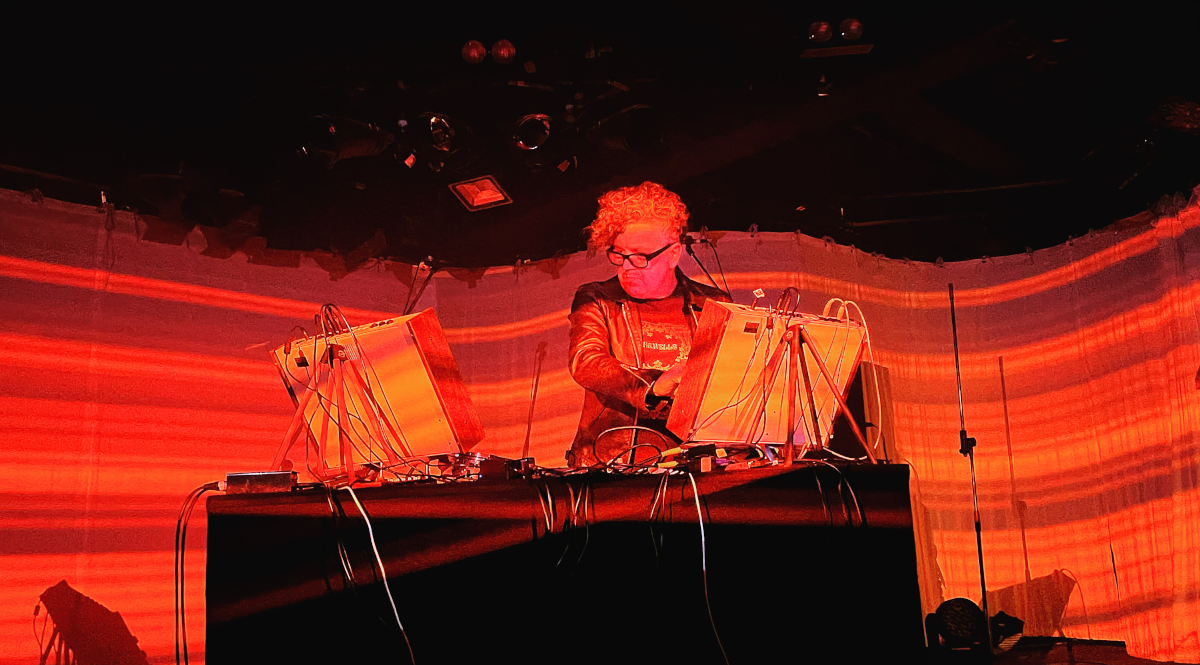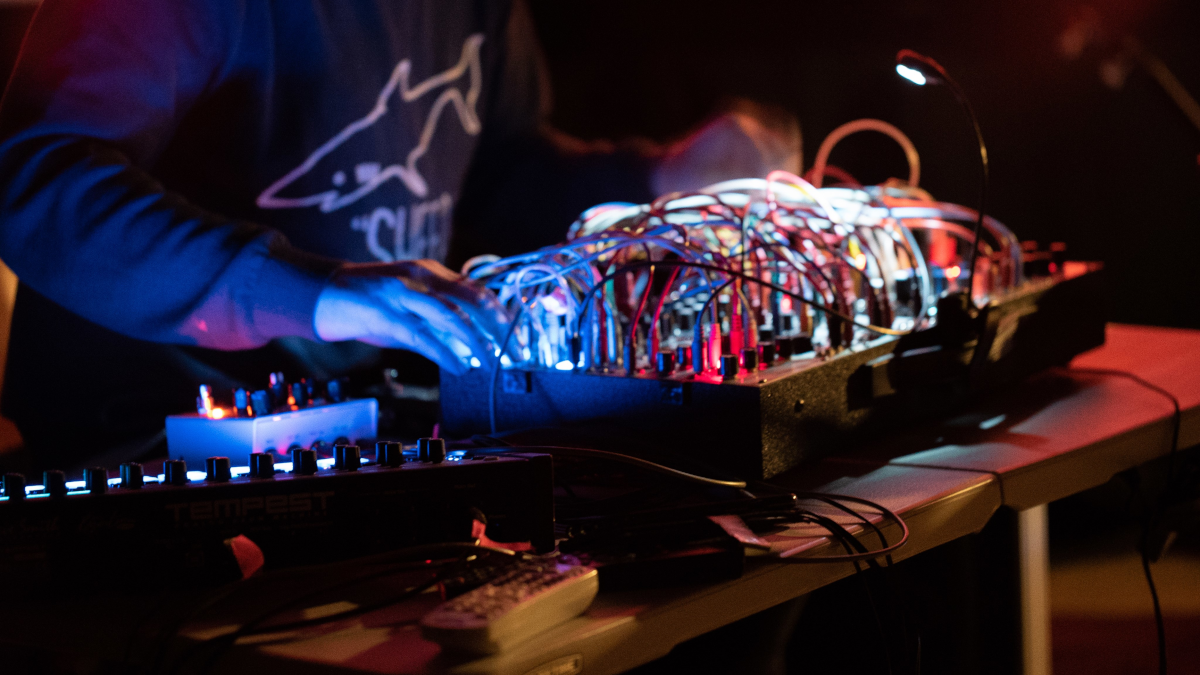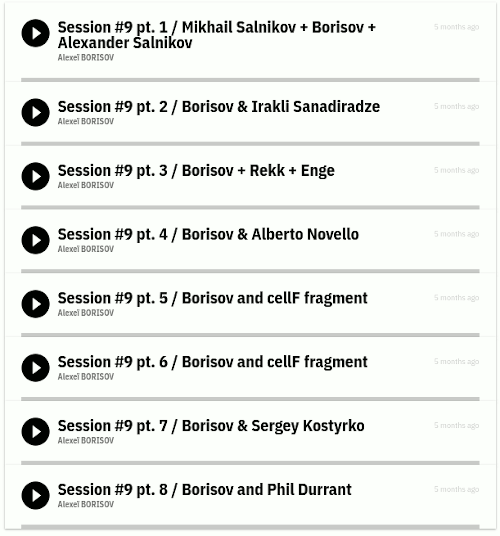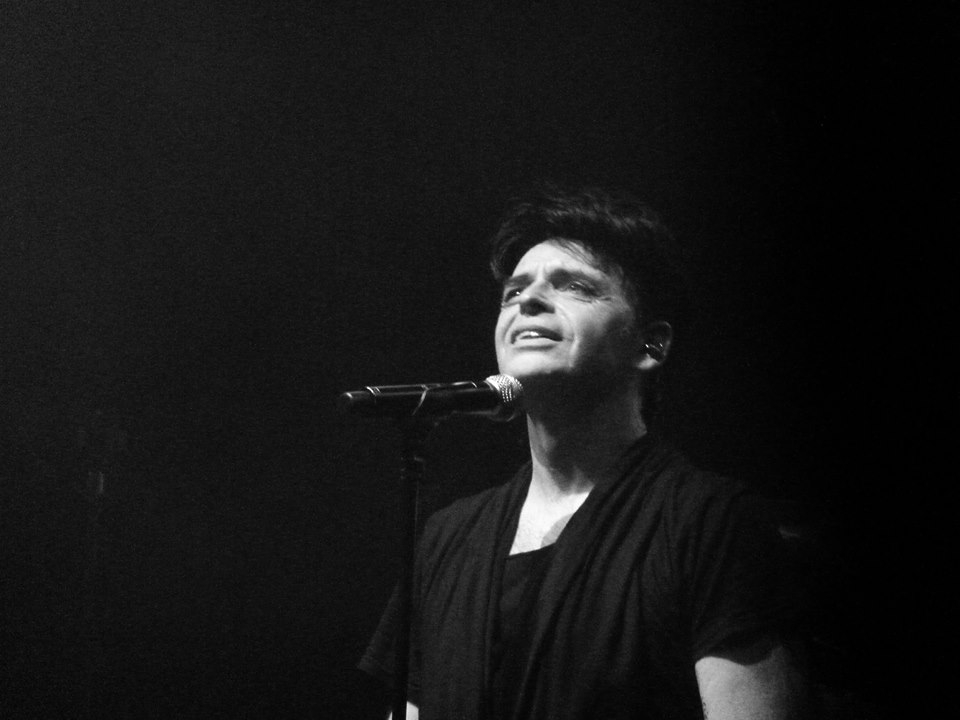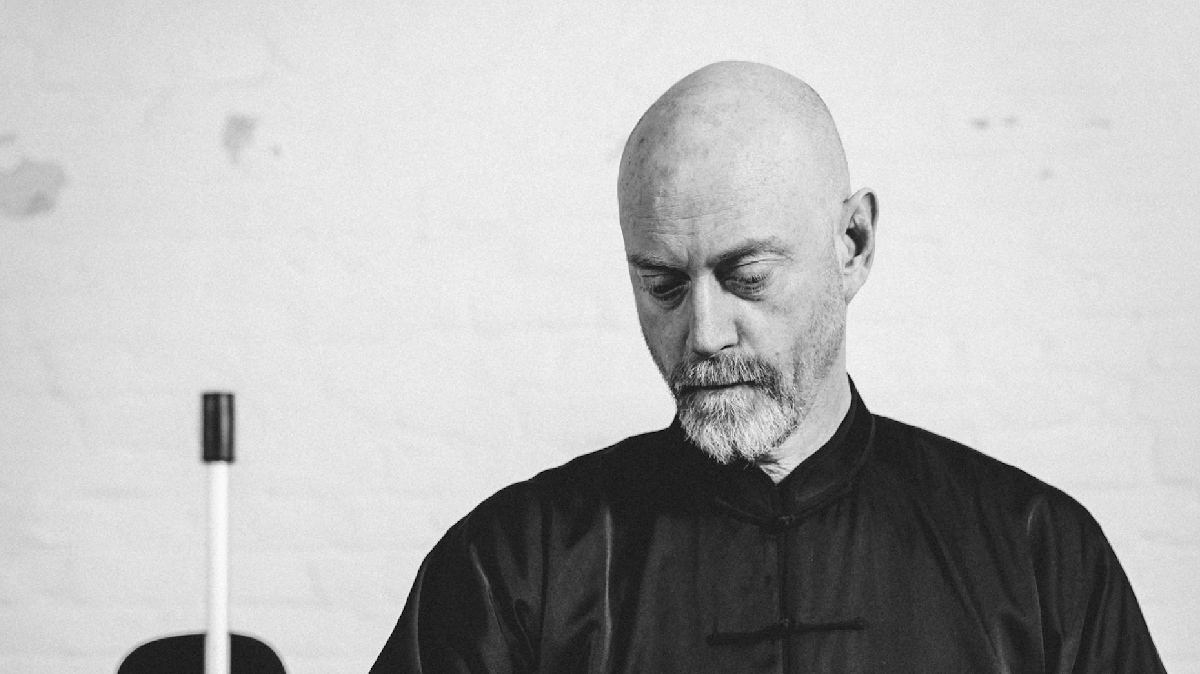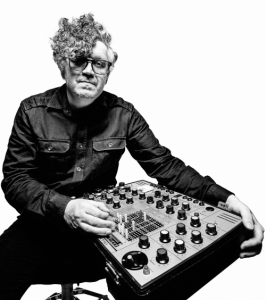 Australian experimental, improvisational and traditional multi-instrumentalist Mat Watson is known for being part of large and uusual orchestras and collaborations. He has played with Boredoms, conducted an orchestra for 40 synthesisers at the Sidney Myer Music Bowl, has multiple solo and collaborative projects on the go at any one time.
Australian experimental, improvisational and traditional multi-instrumentalist Mat Watson is known for being part of large and uusual orchestras and collaborations. He has played with Boredoms, conducted an orchestra for 40 synthesisers at the Sidney Myer Music Bowl, has multiple solo and collaborative projects on the go at any one time.
Mat also runs the Eternal Music Projects label, and spoke to Freq about his 2022 session for Philippe Petit‘s Modulisme series.
When did you first become aware of modular synthesis as a particular way of making music, whether as part of electronic music in general or more specifically as its own particular format, and what did you think of it at the time?
I had been a busy drummer for many years throughout the mid to late 1990s and was exposed to synthesisers and sequencers around that time. I discovered Tangerine Dream in music school, though it wasn’t until I began working in a second-hand record store in 2000 that I began to dig for LPs that mentioned synthesisers or suggest any form of experimental sound.
I ended up amassing a healthy collection of early electronic music LPs. Hearing Morton Subotnick for the first time was a massive pivot point for me, as was Laurie Spiegel‘s piece Appalachian Grove and that amazing CD box OHM: Early Gurus of Electronic Music.These sounds activated my mind and imagination. Soon after, I purchased a Jennings / Univox J4 Valve organ, Moogerfooger pedals and designed a valve feedback machine to use in my collaborative performances. This way of thinking and performing ultimately led me to my first modular system.
What was your first module or system?
EMS Synthi AKS.How long did it take for you to become accustomed to patching your own synthesizer together out of its component parts?
Not very long at all. Pin in, sound out. This said, the arch of discovery is lifelong.
Do you prefer single-maker systems (for example, Buchla, Make Noise, Erica Synths, Roland, etc) or making your own modular synthesiser out of individual components form whatever manufacturer that match your needs.
It depends on where I am at. At present I am using a 12U Frap Tools system made up of three Brenso, 4 x Falistri, Sapel, Usta, Fumana, CGM mixer, 333, 321, Bagai, Cunsa and a Michigan Synth Works fader bank. I’d love to see Frap Tools create an interesting touch interface. I do love a clean aesthetic. I also use an Erica Syntrx system for some of my live projects and then have my AKS for studio and special performancesEast Coast, West Coast or No-Coast (as Make Noise put it)? Or is it all irrelevant to how you approach synthesis?
I probably lean more towards West Coast when it comes to thinking about pure modular techniques, but I am interested in a broad range of sound and style so I let my interests dictate how I approach using these systems.Do you tend to use pure modular systems, or do you bring in outside effect and devices when playing or recording?
I use whatever tools are required to realise my ideas. Loopers, samplers, tape delay, software, whatever, it is all awesome. The deeper you go the deeper you go!
Do you find that you record straight with no overdubbing, or do you end up multi-tracking and editing tracks in post-production?
I do whatever is required for the work I am creating. Sometimes a long-form jam just works. Sometimes the work calls for a deeper approach to composition and production. We have access to so many tools and processes to realise our ideas so I have no intention of ever limiting myself.
Do you pre-patch your system when playing live, or do you tend to improvise on the spot?
It depends on which system I am using. The Syntrx has been amazing to use live as I can pre-load a tonne of patches then just scan through and respond as I open each patch up. That is a little cleaner than manually patching the Synthi in a live situation, though it isn’t quite as satisfying as being under lights throwing pins around.The last live Eurorack performance was pretty locked down, so I am looking forward to heading out to do some improv soon. I need to keep challenging myself to improvise with these systems otherwise the synapses will bind.
Which module could you not do without, or which module do you use the most in every patch?
I don’t have an answer to this question.What do you think that can only be achieved by modular synthesis that other forms of electronic music cannot or makes harder to do?
For me, modular systems represent creative freedom. I only feel limited by my own artistic awareness and motivation on any given day. I love modular systems because of the immediate relationship between human and machine and the connectedness between body and sound. They are playful and engaging and take you away from a more traditional approach to music making. Far less division, and the binary is blurred. The Futurists of the early 1900s kinda said it all.Have you used various forms of software modular (eg Reaktor Blocks, Softube Modular, VCVRack) or digital hardware with modular software editors (eg Nord Modular, Axoloti, Organelle), and if so what do you think of them?
I have, but prefer physical knobs and dials.
What module or system you wish you had?
I would love a 24-panel custom-designed Buchla 200e system.
Have you ever built a DIY module, or would you consider doing so?
Yes. I am crap at soldering. I have no plans to do it again.
Which modular artist has influenced you the most in your own music?
Laurie Spiegel, Ollie Olsen, Bob Ostertag, Morton SubotnickCan you hear the sound of individual modules when listening to music since you’ve been part of the modular world — how has it affected (or not) the way that you listen to music?
Ha! Yes, this is interesting. It is amazing how clearly recognisable certain modules are — be it a sound generator or shape generator, an electronic voice or treatment. I think this is a positive thing though as it pushes you to always dig a little deeper to create something a little more unique. It is an easy trap to fall into thinking that everything you create with a modular system is good, or can be a release or an album of some sort.
The nature of these machines is that they always produce interesting sounds. Our job is to go deep and not settle for the first sound or movement that comes out. That said, I will never tire of the sounds of a complex oscillator doing what it does best.What have you been working on lately, and do you have any upcoming releases or performances?
Solar Cells is my new project and Warm Spell is the first album to be released via Eternal Music Projects here in Melbourne on 16 January 2025. This project is for fans of Cluster, Laurie Spiegel and Tim Blake’s Crystal Machine. It’s the result of a studio system I created to control and sequence my Synthi thanks to a research development grant I received in 2022 through Creative Victoria. It yielded a beautiful collection of new works. We will be celebrating the release of Warm Spell with a double album launch at the Night Cat in Melbourne on 7 February 2025, alongside Australian spiritual jazz funk sounds of Tamil Rogeon.
I also have live shows coming up for my longform improv project Bush Fashion (featuring Dave Brown), new works for Heavy Spectra Ensemble. There are other projects set for release through Eternal Music Projects as well. Keep an eye on the website for more details.
Can you outline how you patched and performed your Modulisme session?
I had a slightly different approach for each movement. For the most part, each piece was performed live. I then went back and overdubbed where I felt it was required. Some of the more lush-sounding pieces were created live with the Synthi and a delay / looper. It is a simple approach but always yields pleasurable results.I wanted to offset some of the harsher sounds from my session. The harsher sounds were created using my Eurorack system. I explored a couple of feedback patches which were really inspiring to me at the time. I love the collated work for this session. It would be great to do a physical release of it at some point!
Who would your dream collaborator be for a Modulisme session or otherwise?
The best quality in a collaborator is humility, empathy and warmth above all else. I think anyone who possesses those traits, and is making interesting music to my ears, would be someone I would like to collaborate with.Links
